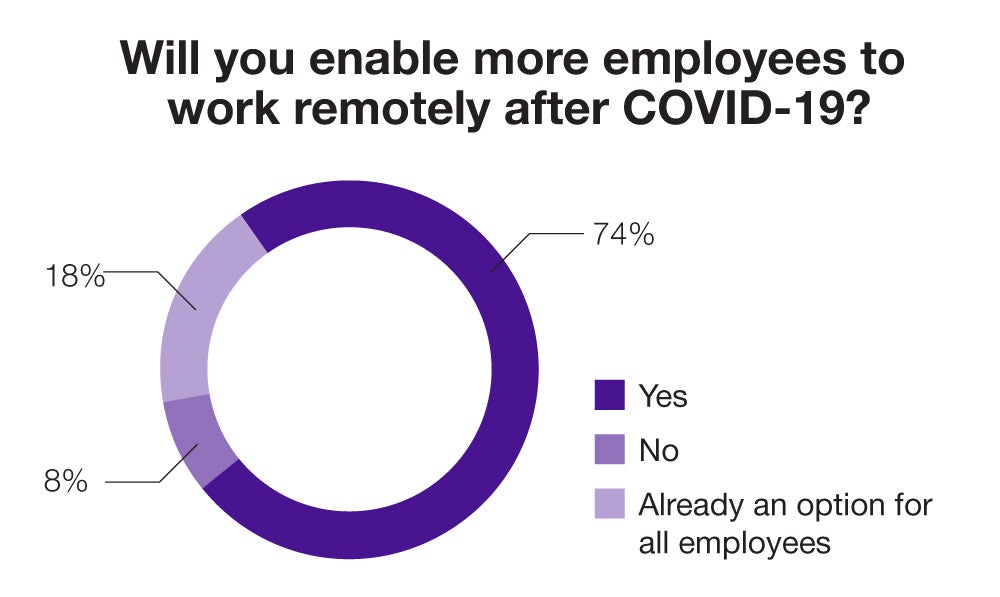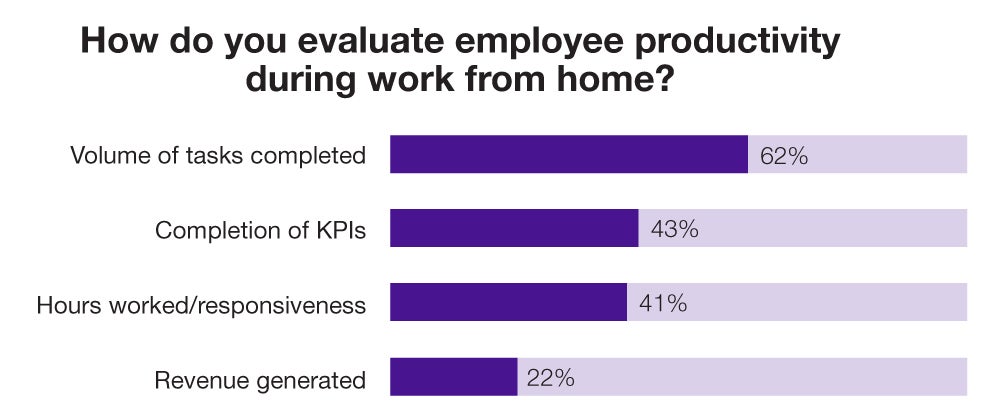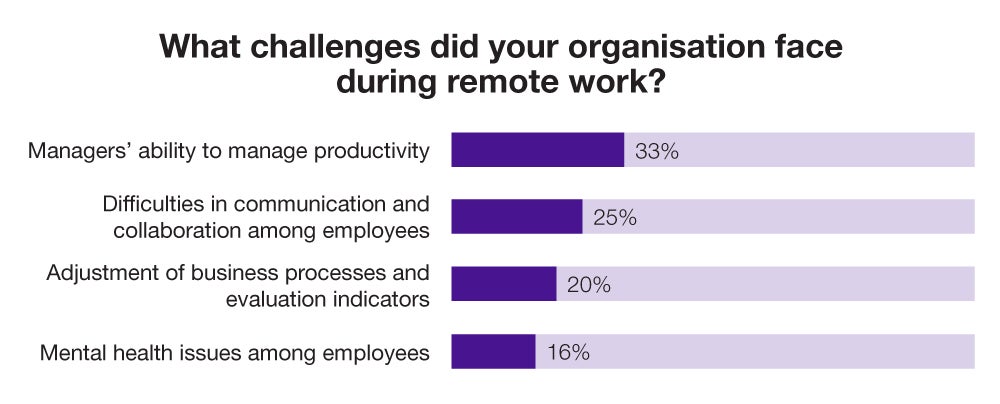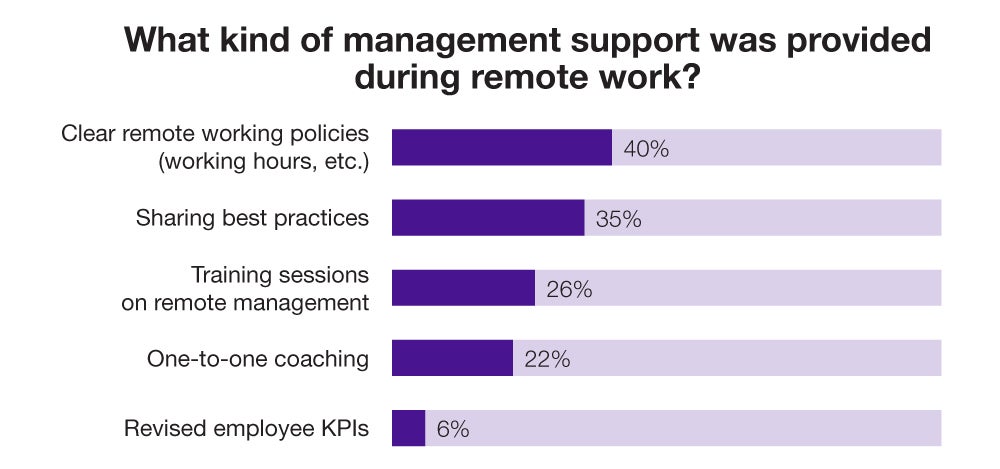Introduction of remote work increased by 59 percentage points; progress towards performance-based evaluation
Responses from 115 domestic and foreign-affiliated companies in Japan

On June 15, specialist professional recruitment firm Robert Walters Japan announced the survey results on post-COVID-19 working styles. A total of 115 domestic and foreign-affiliated companies in Japan participated in the survey.
Introduction of remote work for all employees: 14% before COVID-19, 73% after
When HR personnel from the participating companies were asked whether their employees were allowed to work remotely, 14% responded that remote work was an option for all employees even before the pandemic. As a countermeasure against the spread of COVID-19, 73% of companies introduced work from home for all its employees. When comparing the situation before and after COVID-19, there was a 59-percentage point increase in the number of companies that adopted remote work. Furthermore, 74% answered that they would enable more employees to work from home as a new work style after COVID-19, suggesting that the influence of the pandemic has accelerated the establishment of remote work in Japan.
Volume of tasks completed remains the main indicator of employee productivity; signs of progress towards “performance based” assessment
In response to the question “How do you measure your team’s productivity while managing
remotely?” 62% of 115 companies answered, “the amount of work completed.” Other responses included “achievement of evaluation indicators (KPI)” (43%), “hours worked/responsiveness” (41%), and “revenue generated” (22%). Even though work-style reforms are being carried out to reconsider the normalisation of long working hours, it is evident that many still rely on the number of hours worked and tasks completed to assess productivity during the coronavirus pandemic. But at the same time, 40% of the companies evaluated the productivity of employees based on evaluation indices (KPI) and 20% based on revenue, which indicate steady progress towards adopting results-based indicators.
The key to successful remote work in companies in Japan: training for managers
When companies were asked about issues faced during remote work, “managers’ ability to manage productivity” ranked first (33%), “difficulties in communication and collaboration between employees” ranked second (25%) and “adjustment of business processes and evaluation” ranked third (20%). Health and wellbeing were also of concern as 16% of companies dealt with "mental health issues among employees.” Although many companies believed that managerial skills are directly linked to the success of remote work, less than 30% offered remote management training and coaching to support managers. 20% of companies responded that adjustment of business processes and evaluation indicators was an issue when adapting to remote work, yet only 6% revised the evaluation indicators. These results suggest that there remain challenges while Japan transitions towards a culture of performance-based assessment.
(Survey period: May 11 to May 25, 2020, Target: Domestic and foreign-affiliated companies in Japan n=115 compan
ies)
Related content
View AllThe Robert Walters Asia Job Index tracks advertisement volumes for professional positions in Japan, Hong Kong, Singapore, China, Taiwan, and Malaysia. Latest Index 2015 Q4: Report Highlights The number of job advertisements in Asia jumped by 39%. We saw strong momentum after modest job advertisement
Read More



